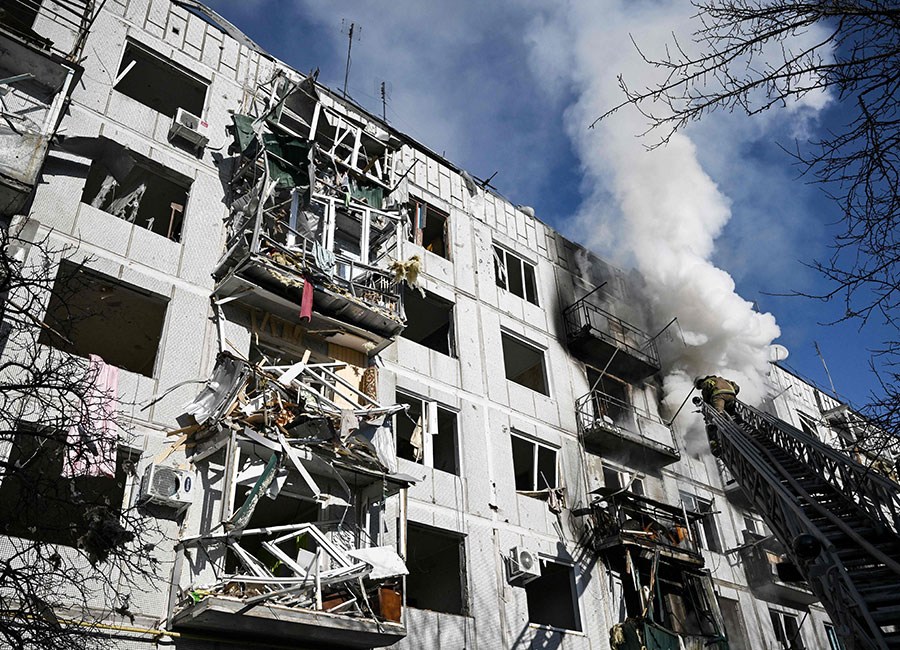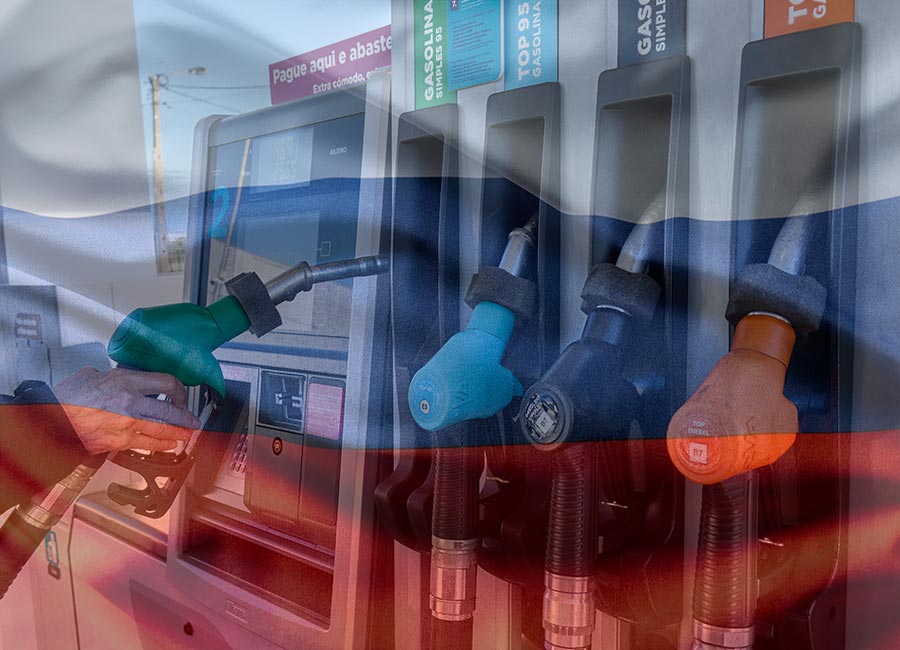Irish motorists could face even higher petrol prices after the United States pushed for a total ban on Russian oil imports last night, experts have warned.
Washington is in 'active talks' with European allies about targeting Russia's energy industry in the next round of sanctions, US secretary of state Antony Blinken announced.
An oil import ban would be highly damaging to the Kremlin's finances - but it would almost certainly also send petrol, oil and gas prices spiralling across the West.
This would push up energy bills, fuel prices and inflation at a time when Irish households are already struggling. Fuel prices hit record highs last week, with petrol and diesel passing €2 a litre at the pumps in some filling stations.
And there are warnings that home heating and electricity costs are also set to rise again 'within weeks' in line with oil and gas prices.
Oil prices had already surged by more than a fifth last week after Russia invaded Ukraine, finishing at $118 a barrel at close of trading on Friday.
David Morrison, senior market analyst at Trade Nation, said: "I think we're going to see a very sharp bump in oil prices, even without the European approval that the US says it will seek before taking action.
"That means more pain for all consumers already facing sharp increases in energy prices. For some, this will be a price worth paying to support Ukraine - but it's a disaster for those already struggling."

Analysts warned Europe was far more vulnerable to the negative effects of an import ban than the US.
Sam Wahab, head of oil and gas research at UK broker SP Angel, said: "With an estimated 30% of oil and 39% of gas supplies coming from Russia into Europe, the Continent is far more reliant on Russia for energy and far less able to tap into domestic resources given an increasingly green agenda and underinvestment in the sector during the pandemic."
Here there are also growing fears of food shortages as grain supplies from Russia and Ukraine are disrupted. Agriculture Minister Charlie McConalogue is to meet with farmers' groups tomorrow and is expected to ask them to grow more grain.
Ukraine and Russia together supply approximately 30% of the world's grain, and Russia provides approximately 22% of Ireland's fertiliser needs.
Meanwhile, the UK's top military commander has suggested that Russia's 'decimated' forces could lose the war in Ukraine. British admiral Tony Radakin said Vladimir Putin's troops were "in a mess" and the invasion was "not going well". His comments yesterday represent the most optimistic assessment yet of how the conflict may end.
When the invasion began less than a fortnight ago it was assumed inevitable that Russian's tanks would roll into Kyiv within hours. But after a series of strategic blunders and the remarkable resistance of Ukrainian troops, the outcome of the campaign could now be in doubt.
Mr Radakin, former head of the British royal navy who was appointed chief of the defence staff late last year, was speaking after eight Russian aircraft were shot down in 24 hours. The Russians, contrary to their military doctrine, have also been forced to admit that almost 500 of their soldiers have been killed.
In some of the most harrowing scenes of the conflict so far, at least eight civilians fleeing the town of Irpin, near Kyiv, were killed in Russian attacks alongside the suitcases that they had packed for their escape.








